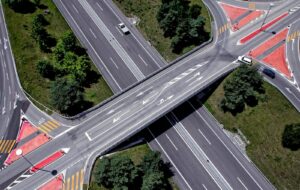Glasgow City Council are piloting a smart technology which senses traces of damp conditions in social housing to help combat health conditions.
The technology, which comes in the form of a sensor, has been fitted into 30 homes by West of Scotland and Southside Housing Associations.
Although the current sample of homes remains small, if the sensors are proven to be successful, the council have said they will be expanded across the city.
Sensors that have been fitted into homes monitor temperature, moisture and vapour pressure and send real-time data to a central hub every 30 minutes which alerts social landlords and the council about critical conditions in a property.
Although people are aware that living with mould can make you ill, the NHS have reported that if people live with the substance, it can cause rashes and asthma attacks, the two-year-old that died as a result of a respiratory condition caused by exposure to mould shows this technology is needed now more than ever.
The toddler passed away in December 2020 despite his family repeatedly raising the mould issue with Rochdale Boroughwide Housing (RBH).
A report by the Fraser of Allander Institute this week displayed damp and overcrowded accommodation as a factor in the dramatic stalling of improvements in living standards in Scotland.
However, previous housing condition surveys in the country have shown a decrease in the number of properties which have reported damp conditions over the last ten years.
Although, surveys have suggested that lower income households were still the worst affected.
Councillor Kenny McLean, City Convener for Housing at Glasgow City Council, said: ‘Our work with our partners on this pilot project will see the use of technology that will hopefully improve the lives of residents and the condition of their homes.
‘The success of this pilot could pave the way for wider adoption of such technology to optimise energy efficiency, in turn reducing fuel poverty and the impact of housing on the environment and improve the delivery of housing and other services to households.’
Photo by Adam Marikar


















Leave a Reply